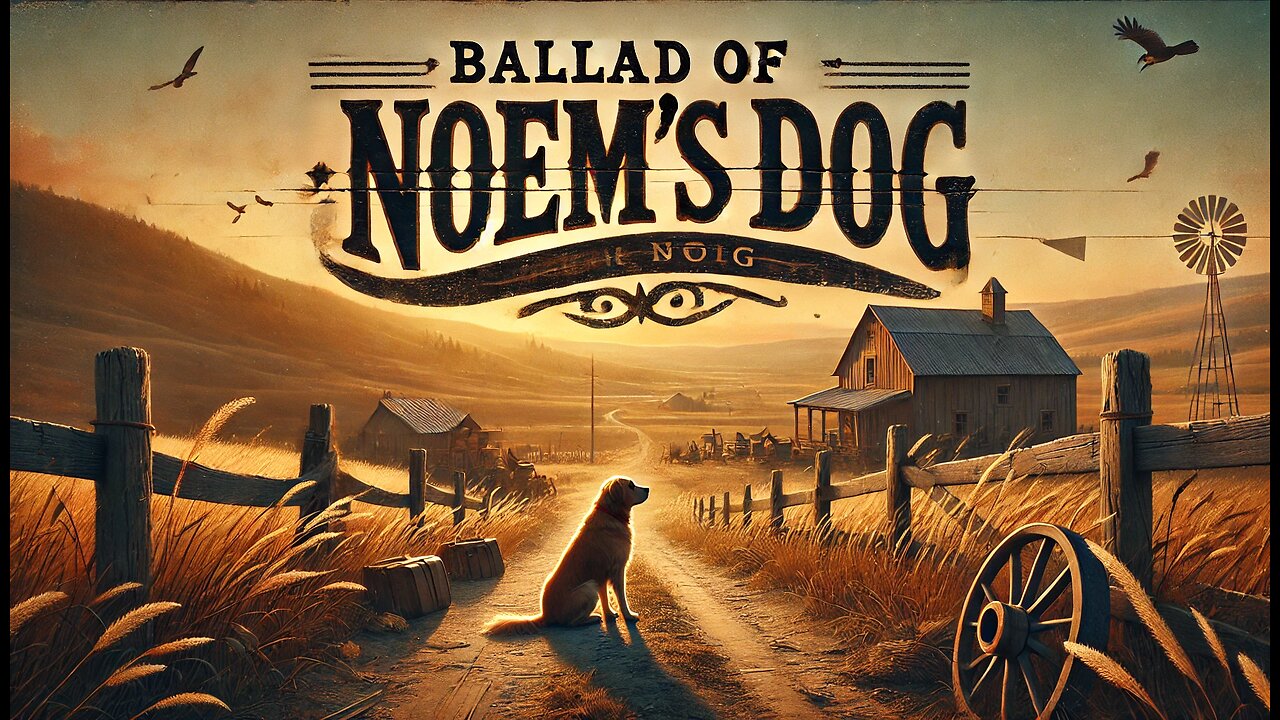Premium Only Content

The Ballad of Noem's Dog
#Care #Utility #Value #Responsibility #Stewardship #Loss #Expectation #Ethic #Animal
The Ballad of Noem’s Dog moves through a triad of Utility, Value, and Care—a progression not of behavior, but of ethical recognition. The story is not about the dog alone, but about what its fate reveals: how quickly function becomes the measure of worth, how swiftly judgment arrives when care is withheld, and how the consequences fall on the voiceless first.
Utility opens the triad. The dog is framed by its failure to perform: too wild, too sharp, no use for field or sport. But utility is not neutral—it’s a frame imposed, a standard built outside the being itself. The animal is not evaluated, but categorized and dismissed. The story names the root: usefulness is demanded first, before understanding is offered. The gun is not the first act—it is the conclusion of a system where roles are fixed and deviation punished.
Value is the hinge—the place where care should emerge, but doesn’t. Value becomes conditional, granted only through obedience or performance. But when that standard isn't met, value is revoked, and care collapses with it. The story exposes this break: a love premised on compliance cannot survive complexity. When value is tied to results, every failure becomes a threat, and every bond is brittle. The dog was not beyond care—it was never given it.
Care is the unrealized potential—the thread that could have restructured the story. True care precedes utility, and it generates value rather than waiting for it to appear. But in Noem’s telling, care was kept in reserve, withheld until proven deserved. And in that delay, the shape of possibility was lost. The dog was not trained or guided—it was named and judged. What could have been formed through time and attention was aborted by fear and projection.
Utility demanded without value becomes control. Value withheld in absence of care becomes abandonment. Care restored beyond utility becomes stewardship—not ownership, not dominance, but covenant.
-
 1:44:36
1:44:36
Megyn Kelly
23 hours agoRemembering Charlie Kirk, with Tucker Carlson, Donald Trump Jr., and Benny Johnson
33K85 -
 LIVE
LIVE
Nerdrotic
2 hours agoCulture Is VITAL! Streaming BUST, Warner Bros. Buyout | Friday Night Tights 371 with Vara Dark
1,870 watching -
 9:40
9:40
Lara Logan
1 hour agoHonoring Charlie Kirk - Going Rogue with Lara Logan - LIVE
12.1K22 -
 3:03:45
3:03:45
The Charlie Kirk Show
4 hours agoCharlie Kirk: A Life of Faith, A Legacy That Endures
424K353 -
 3:58:08
3:58:08
The Rubin Report
5 hours agoCharlie Kirk’s Best Moments on The Rubin Report
52.2K16 -
 UPCOMING
UPCOMING
FomoTV
16 hours ago🕯 Charlie Kick Assassinated — Radical Campus Rhetoric Made This Possible | Fomocast 09.11.25
5.31K3 -
 3:08:36
3:08:36
Right Side Broadcasting Network
5 hours agoLIVE REPLAY: Latest News from the Trump White House - 9/12/25
64.3K17 -
 LIVE
LIVE
Dr Disrespect
5 hours ago🔴LIVE - DR DISRESPECT DESTROYS BORDERLANDS 4 - INSANE LOOT, CHAOS & RAGE
1,245 watching -
 1:28:34
1:28:34
Mark Kaye
4 hours ago🔴 How Charlie Kirk's Killer, Tyler Robinson, Was Caught!
47K32 -
 59:58
59:58
Jeff Ahern
2 hours ago $1.27 earnedFriday Freak out with Jeff Ahern
18K1